Assembly Experiment5
Posted mrorangerabbit
tags:
篇首语:本文由小常识网(cha138.com)小编为大家整理,主要介绍了Assembly Experiment5相关的知识,希望对你有一定的参考价值。
Answer to the experiment(1),(2),(3),(4)
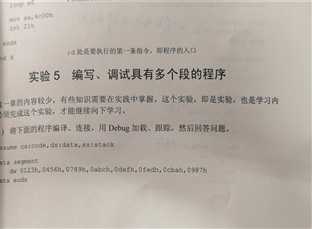
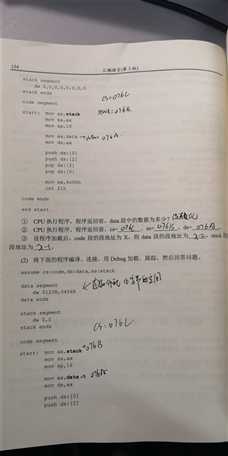
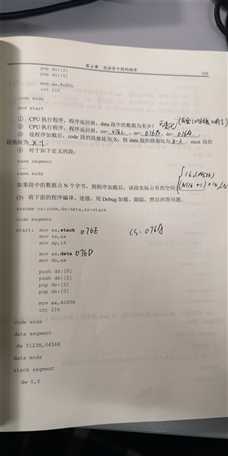
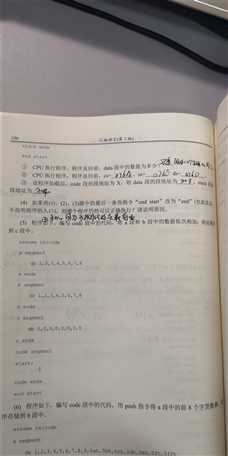
Experiment(5):
Screenshots&Results:
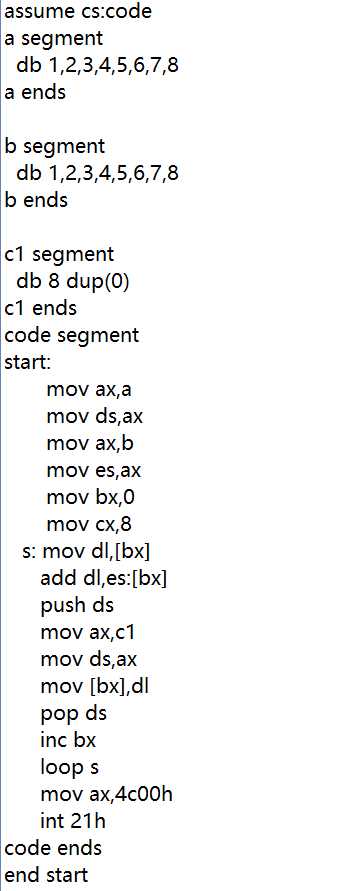
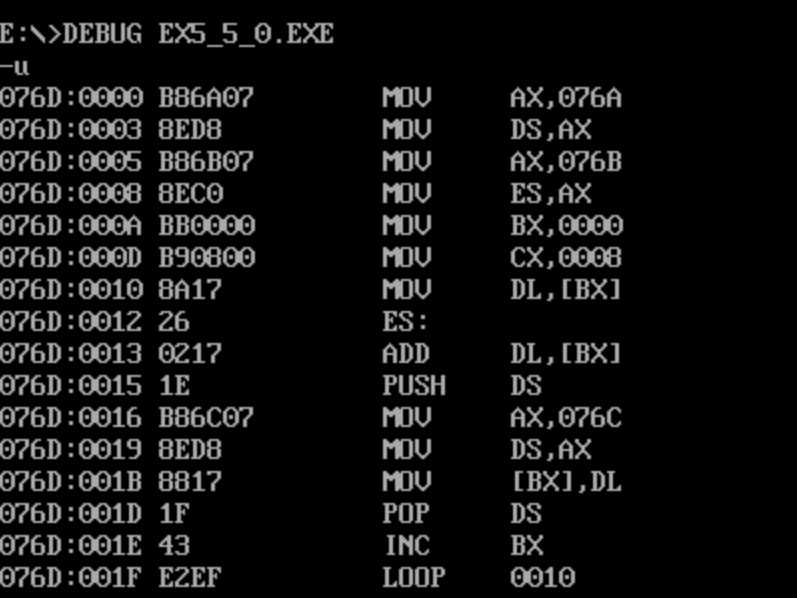
from the command u
we can know that
a : 076A
b :076B
c1 :076C
elements in c1 before adding a and b
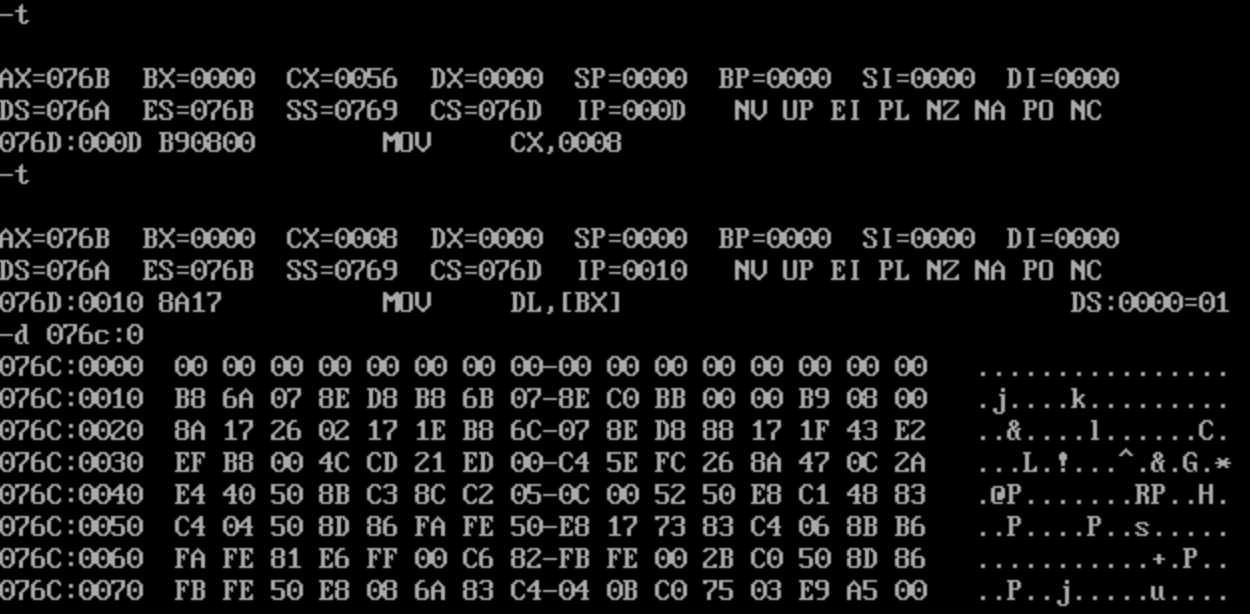
after adding a and b
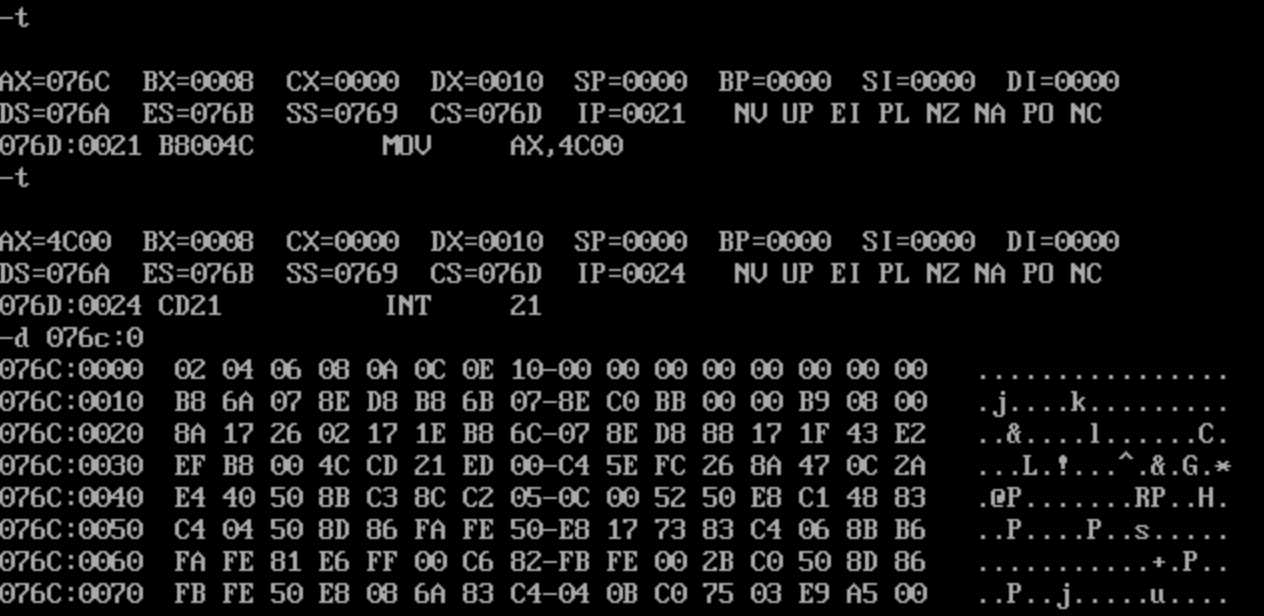
076C:0000~076C:0007: 02 04 06 08 0A 0C 0E 10
just double the elements in a (also a+b)
Experiment(6):
Screenshots&Results:
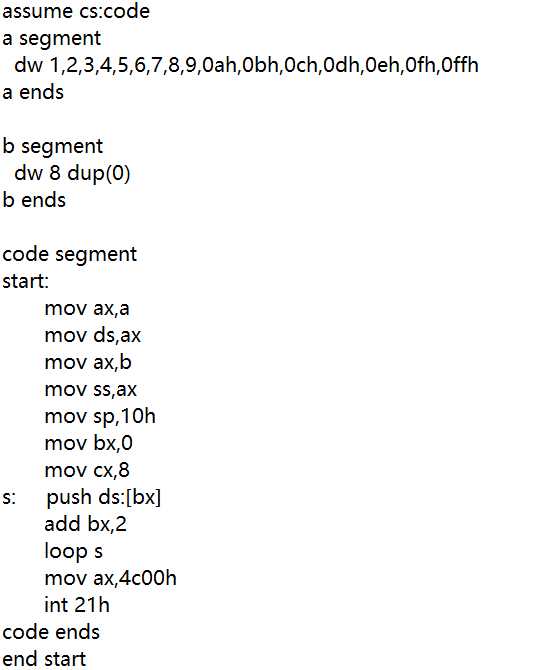
disassemblig:
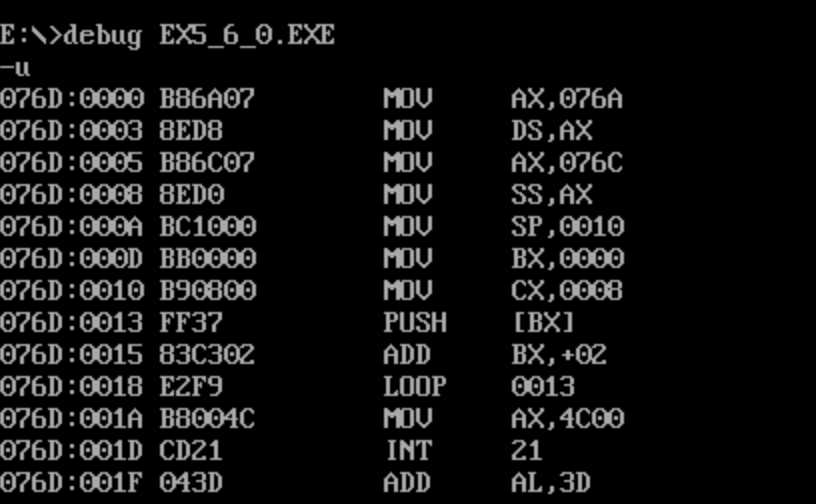
we can know that
a:076A
b:076C
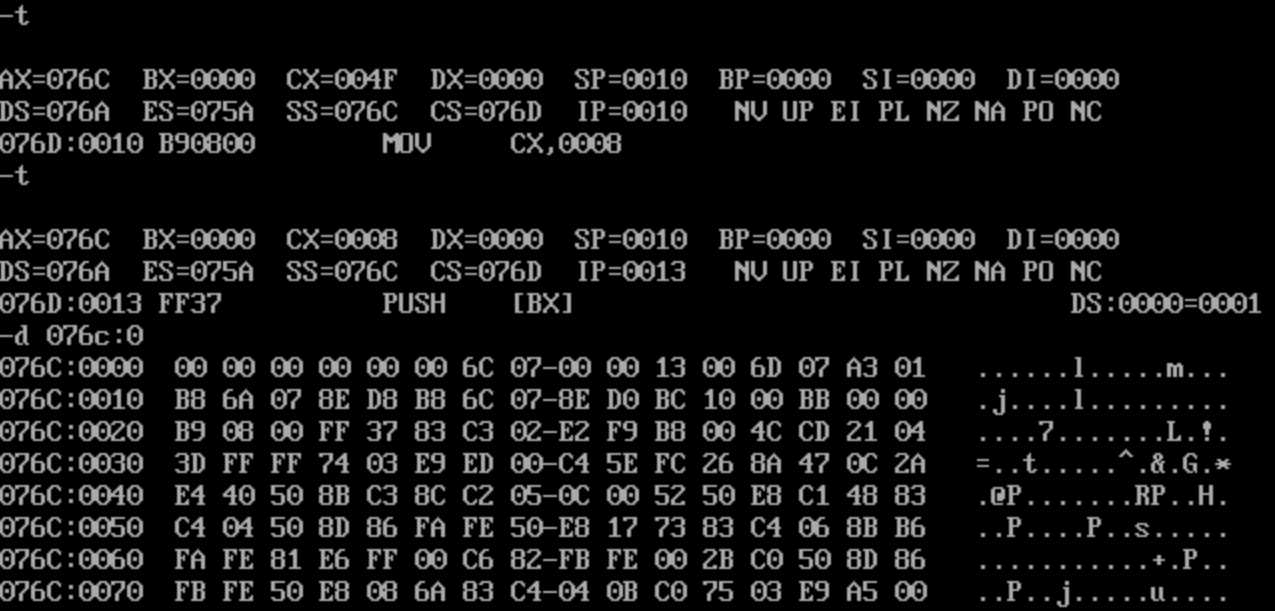
elements in b before push elements into stack b
the last two elements: 6c 70 is the address of the stack b (076C)
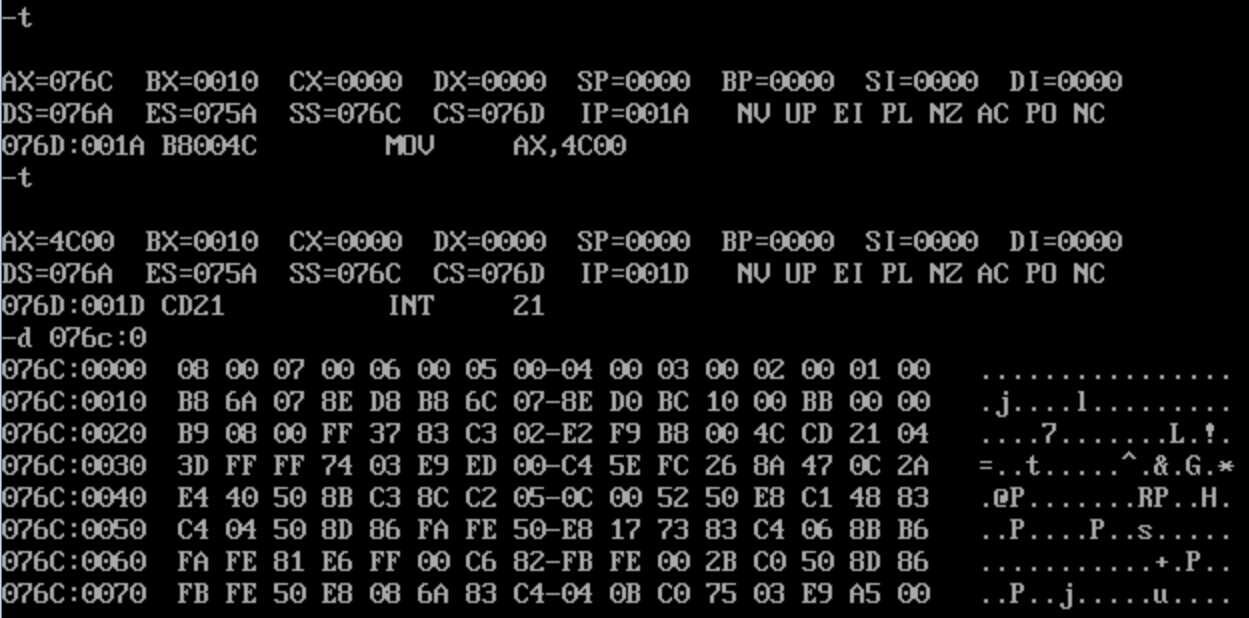
elements instack b after pushing elements into b
obviouly, the answer is right
Review of this experiment:
From this experiment, we get the method to design the program by ourselves, especially under the circuma=stance that the several segments are given.
Also, we need to know which way to add a number into a register is more fast, for example, when expressing (bx)+=1 in assembly language, we use ( inc bx ) instead of ( add bx,1), because when you disassemblying the code, you will find that the former statement cost 2 words, but the latter cost 3 words. But, it doesn‘t work when the number getting bigger, for example, if you want to express (bx)+=2 or more, using ( add bx,2 ) is faster.
Another important method is that we need to focus on the changes of the elements in the segments during executing step by step, only by dong this dull work, you can easily find your protential mistakes.
However , the most important recipe I get during this experiment is that, because there are only 4 special segments in 8086CPU (DS, ES, SS, CS) , which means that you should use them properly after thinking. And, if you need to reuse one of these segments, you should protect the former data in the segments by using (push segment) and (pop segment) to preserve and recover the data in the segment before.
以上是关于Assembly Experiment5的主要内容,如果未能解决你的问题,请参考以下文章